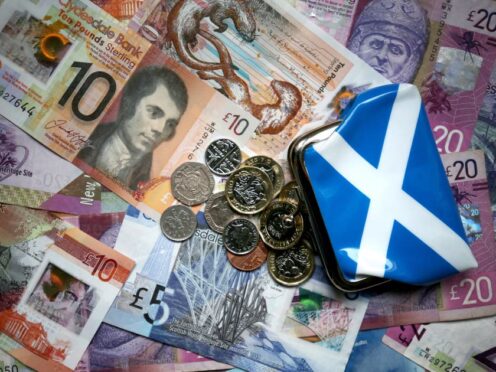
Scotland’s local authorities have been told it will “not wash with council tax payers” for them to accept cash from the Scottish Government to freeze the council tax at the same time as putting up the charges.
Deputy First Minister Shona Robison insisted that would not be acceptable, despite some in local government seeking to bring in capped increases in the council tax while also taking money from the Scottish Government for the freeze.
Ms Robison, who is also Finance Secretary, stressed ministers were providing councils with £147 million for freezing council tax bills in 2024-25 in what is a “difficult” budget “for the whole public sector”.
Rejecting the idea that councils could take the cash but also increase bills, she told MSPs on Holyrood’s Finance Committee: “That money is for the freeze and I don’t think it would be acceptable to council tax payers for us to say ‘you can have the money and you can put council tax up as well’.
“I don’t think that is going to wash with council tax payers.”

Speaking as the Scottish Government’s budget completed its second stage of scrutiny at Holyrood, the Finance Secretary said the money for the freeze “is on the table and it is for local councils to decide”.
She added: “We have already seen a number of councils, of all political colours, make the decision to freeze the council tax.
“In difficult financial times, we have, I think, been fair to local government, but it is a tough budget and it is tough for the whole of the public sector.”
With some £14 billion going to councils, she said they would receive 32% of the Scottish Government’s overall budget in 2024-25 – up from 31% in this current year.
The Deputy First Minister told MSPs: “In a budget where there is less money, the size of the cake is reduced, local government literally has a bigger slice of it.
“That tells me that within a difficult financial environment and settlement that local government has been treated reasonably fairly.”
With pressure on public finances, Ms Robison went on to urge UK Chancellor Jeremy Hunt not to cut taxes in his Budget on March 6 – and instead to invest any available funds in public services.
With a general election looming, there has been speculation the Chancellor could seek to woo voters with tax cuts.
Mr Hunt himself said he wants to “lighten the tax burden”, although he said earlier this month that he does not believe the upcoming spring Budget will have “the same scope for cutting taxes” as the autumn statement.
Ms Robison urged him to resist the temptation to reduce taxes, saying she was “clear that the UK Government needs to use any headroom it has to invest in services”.
The Deputy First Minister added: “I really hope he prioritises investment in public services, rather than tax cuts, because that would enable us to make investments in our enterprise agencies, or universities or colleges.”

Enjoy the convenience of having The Sunday Post delivered as a digital ePaper straight to your smartphone, tablet or computer.
Subscribe for only £5.49 a month and enjoy all the benefits of the printed paper as a digital replica.
Subscribe